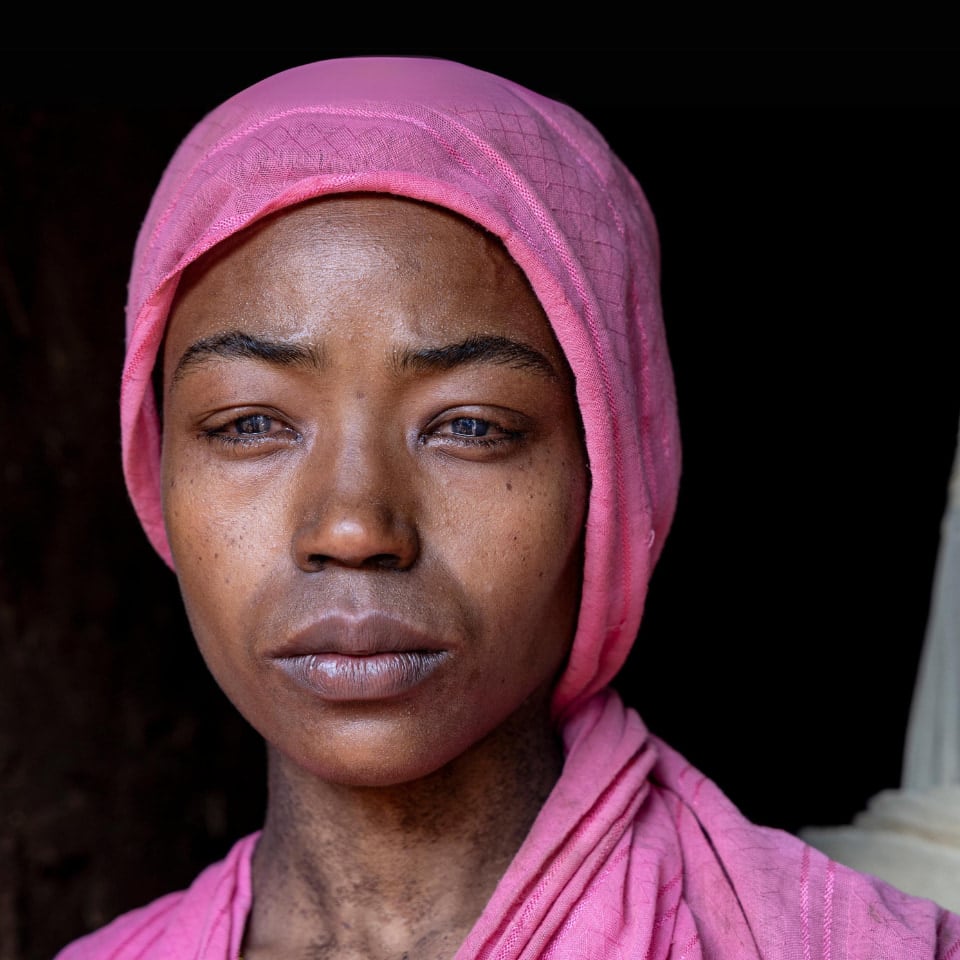"20-20-20 eye care Lens Clothes"
To thank you for your support, The Fred Hollows Foundation is specifically offering a personalized "9 out of 10 people who are blind don't have to be." to friends who join our monthly donation program.
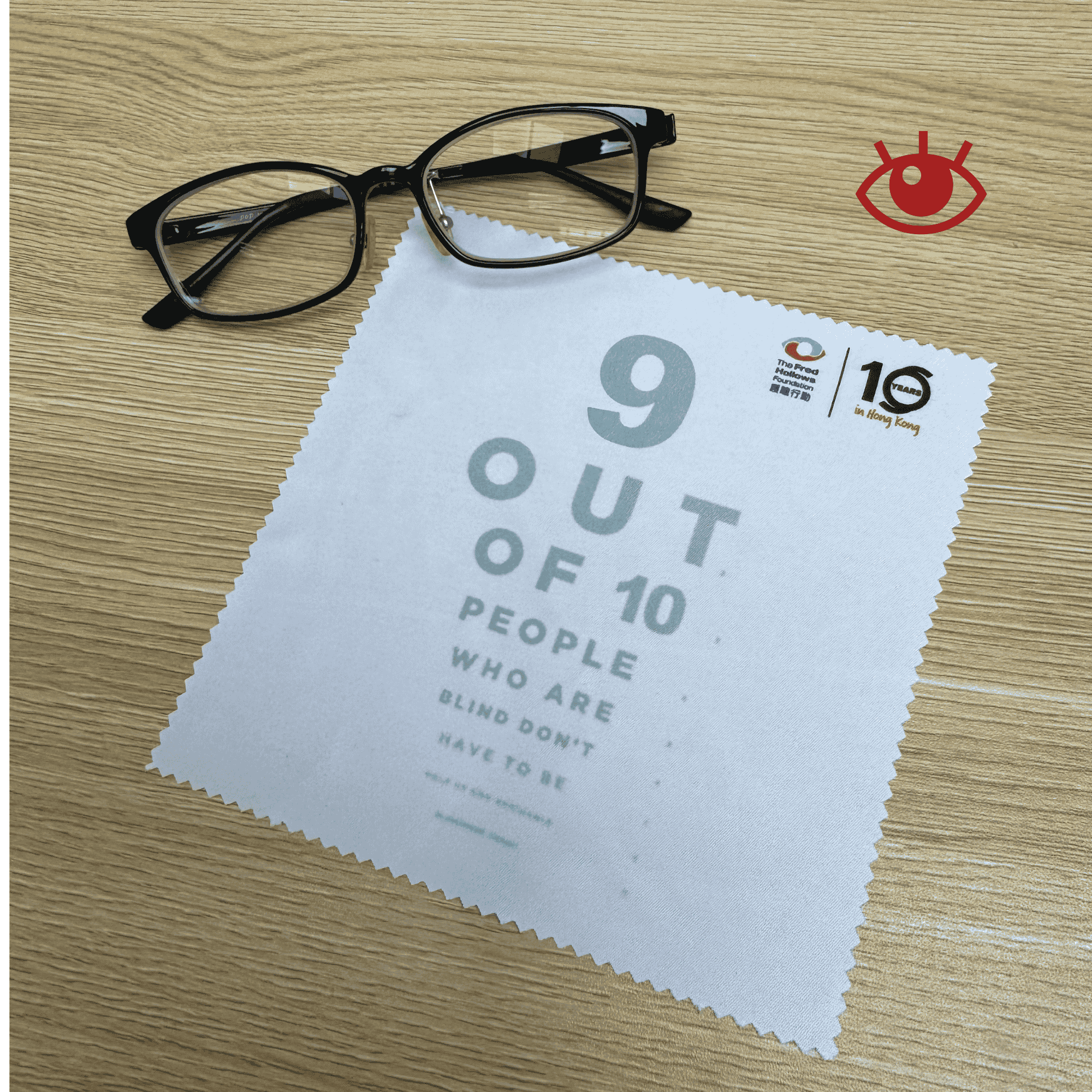
Thank you for your support, allowing us to go further on our journey to restore sight and help more people.
Lens Clothes: Quantities are limited, available while supplies last.
Lens Clothes Size: 15cm X 15cm
Trachoma holds families back. We must act now.
Ethiopia’s Oromia region faces the world’s highest burden of trachoma, holding its people back. With your help, The Fred Hollows Foundation is working to make eye health care accessible to all.
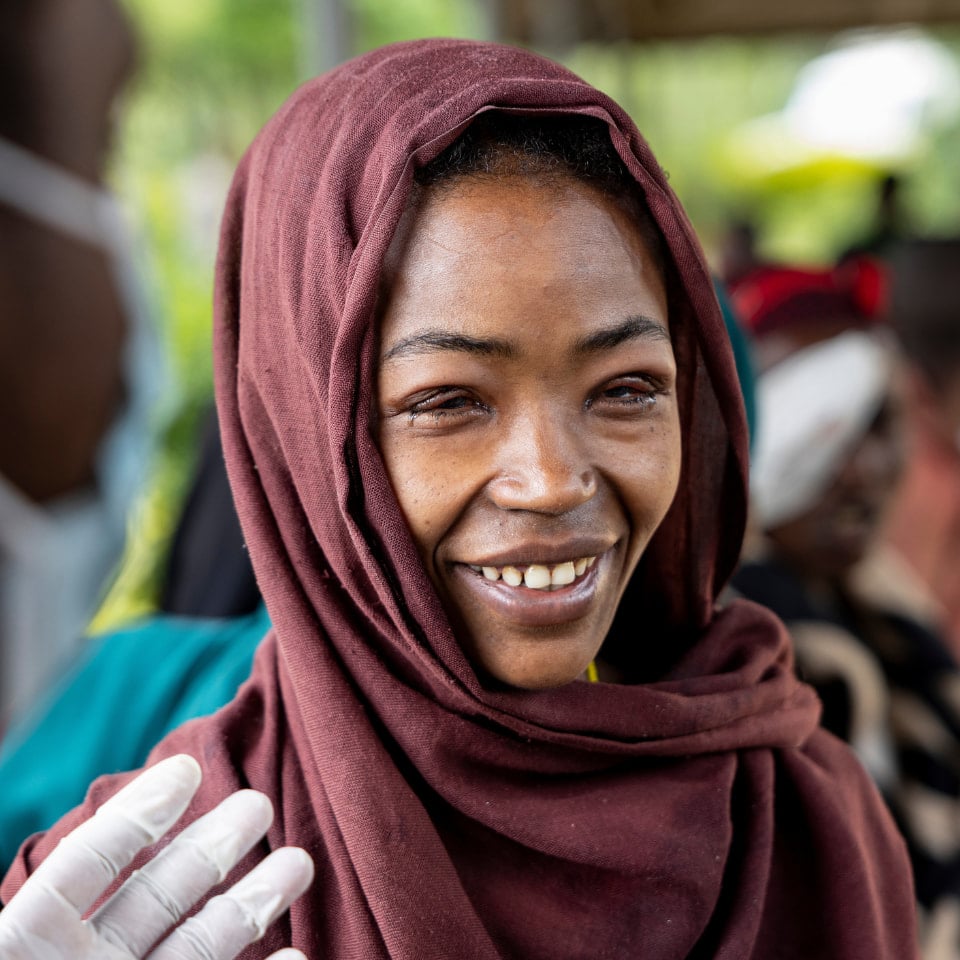
Ethiopia needs your support
In Oromia, where over 63 million people are at risk, access to eye health services is limited. In areas with poor sanitation, trachoma spreads rapidly, affecting people’s opportunities to work, go to school and provide for their family. Those who don’t receive help face a lifetime of blindness. But with your gift today, there is hope. Your support can help break the cycle of poverty and disease.
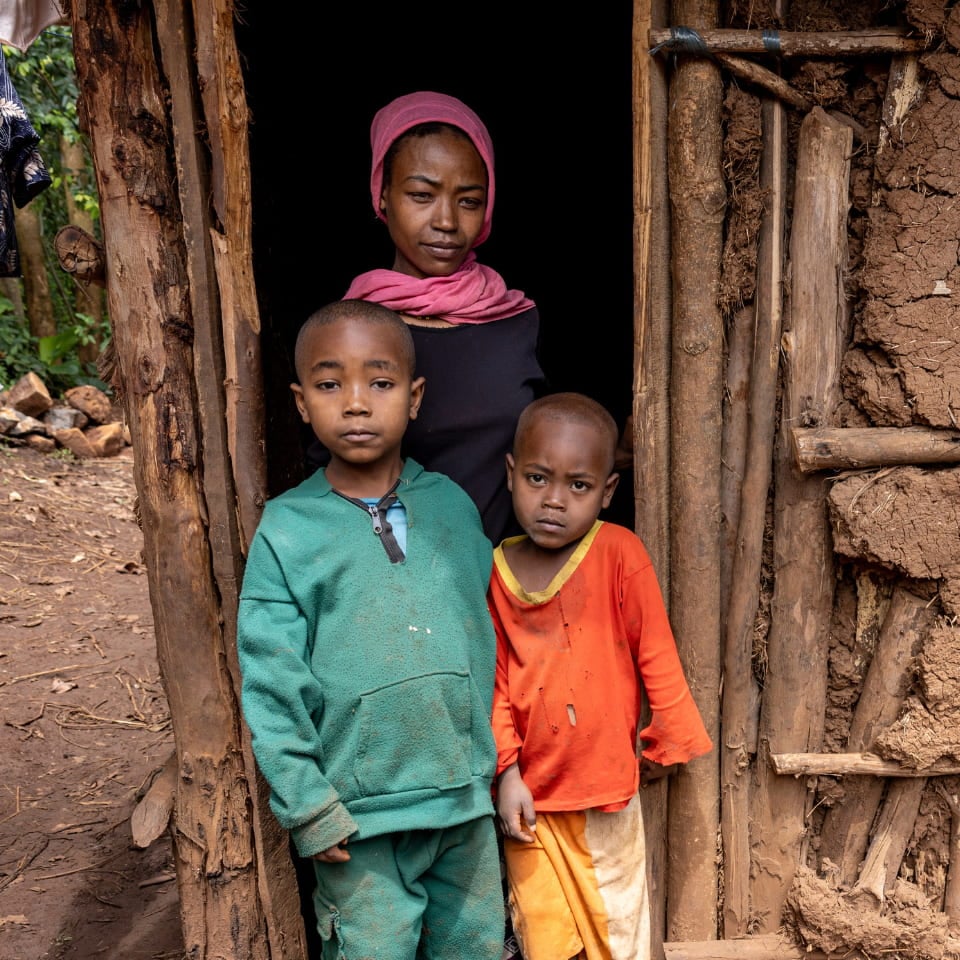
Education is key
In many communities, a lack of education means that people are unaware that trachoma is treatable. For many families, the disease is unavoidable, preventing them from seeking timely treatment. Educating communities about eye health empowers individuals to prevent the devastating effects of trachoma.
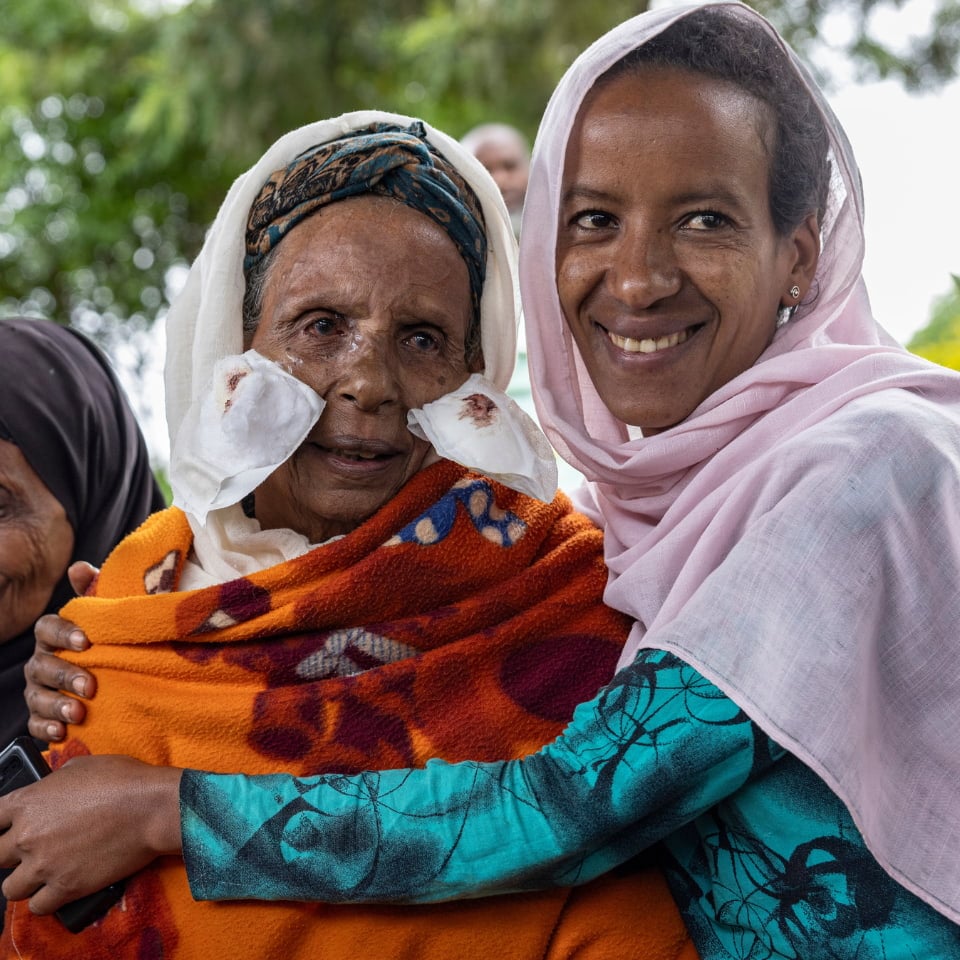
Women and girl's futures are at risk
Mothers are more likely to develop repeated infections from their children, and women are four times more likely to go blind from trachoma than men. Women and girls are most often carers for infected or blind relatives, which also means they are unable to earn an income or go to school to get an education. You can help women like Semira get the support they urgently need.
This Ethiopian woman lived with agonising pain until we found her
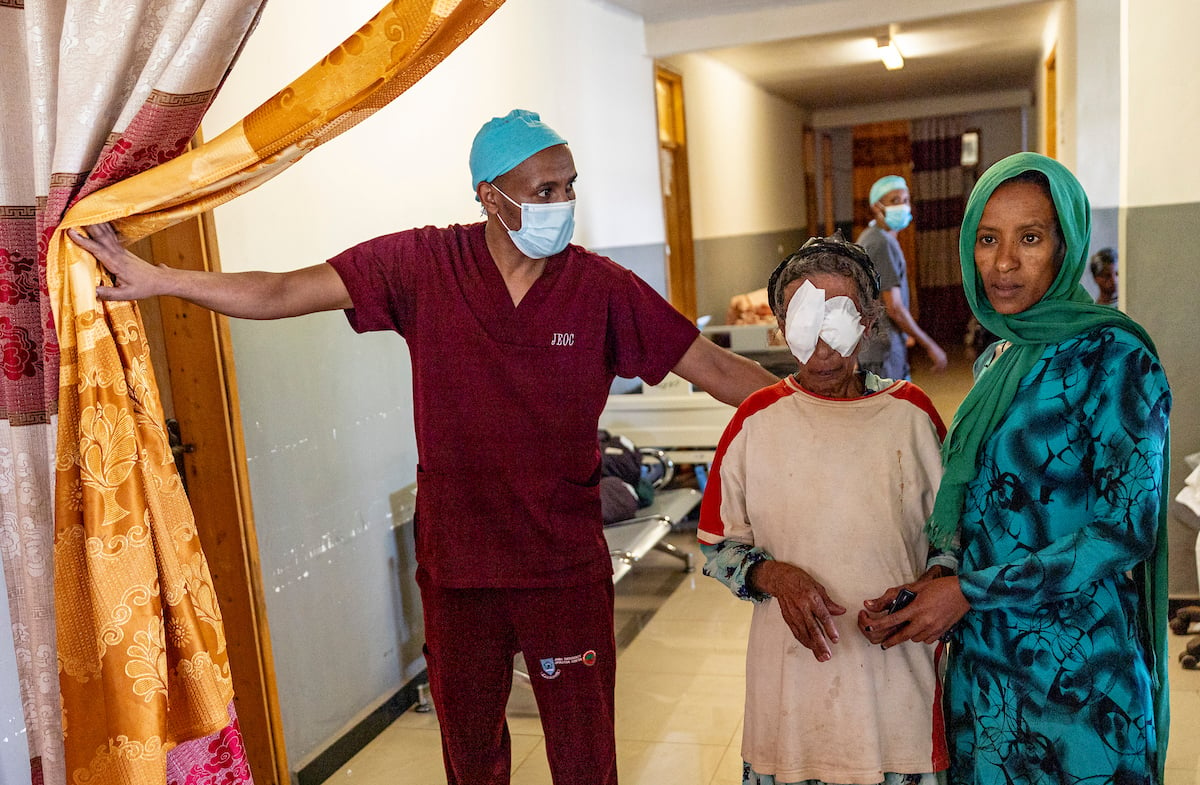
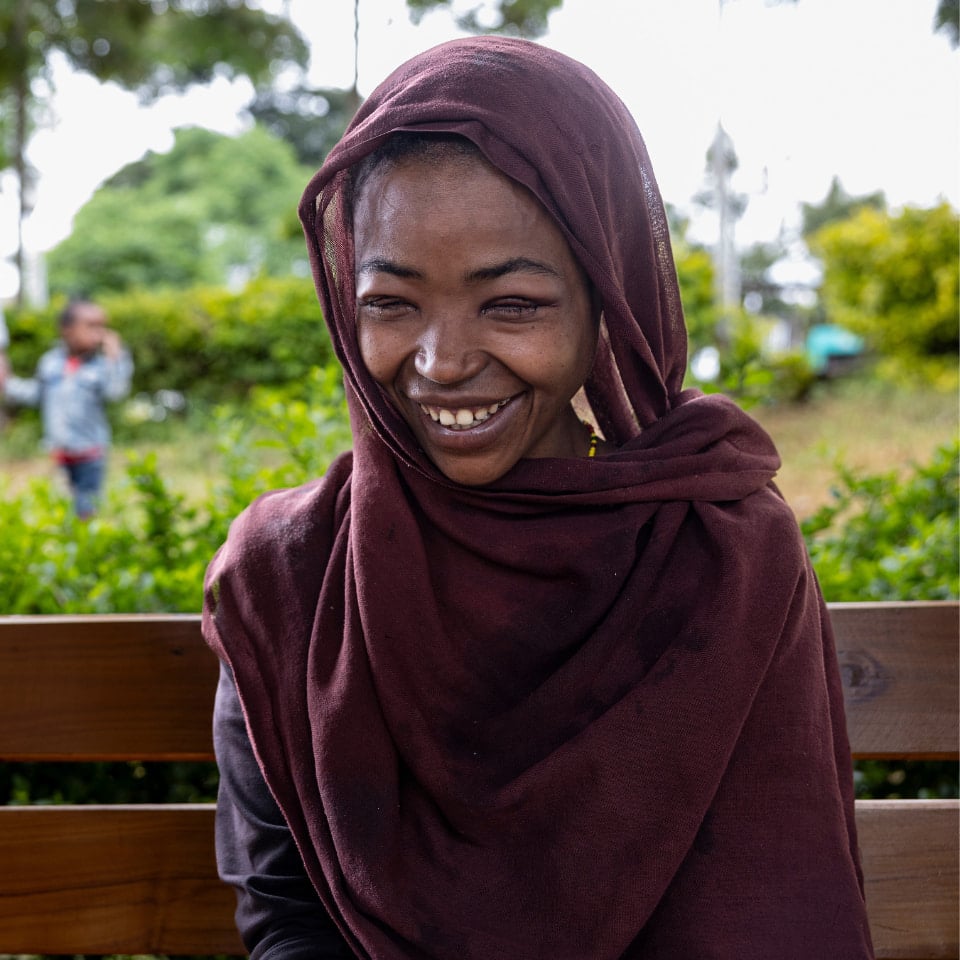
With your help there is hope for Ethiopia
Your kind gift today will shape Ethiopia’s future. With your help, community health workers can continue their sight-saving work.
On the day of Semira’s surgery, she was anxious. This was her chance for a better life.
Thanks to your kindness, Semira now sees clearly. Her relief and gratitude were immense.
"Now I can see my children’s smiles again.”
Today, Semira is thriving. She cares for her children and supports her family. Her and her children’s future is bright.
“I feel like a curse has been lifted.”
Your kind gift today will help save sight in Ethiopia in 2024, enabling us to:
- Distribute antibiotics to more than 5.5 million people to treat the pain and prevent ongoing trachoma infections
- Perform sight-saving surgery for more than 34,000 people
- Continue to implement the World Health Organization’s S.A.F.E. (surgery, antibiotics, facial cleanliness, environmental improvements) strategy to eliminate blindness from trachoma
Will you help carry on Fred's vision?
Fred Hollows dedicated much of his life’s work to fight trachoma.
Fred and Gabi started The National Trachoma and Eye Health Program in 1975, in an effort to eliminate trachoma in Aboriginal and Torres Strait Islander communities.
“It is scandalous that these nineteenth century diseases of poverty should continue,” Fred said in 1974.
With your help today, Fred’s work for a trachoma free future can continue beyond Australia.
Every year, thousands of people like Semira endure trachoma in Ethiopia. We must act now to save sight.
You can help us get one step closer to achieving Fred’s dream of eliminating trachoma and ending avoidable blindness.
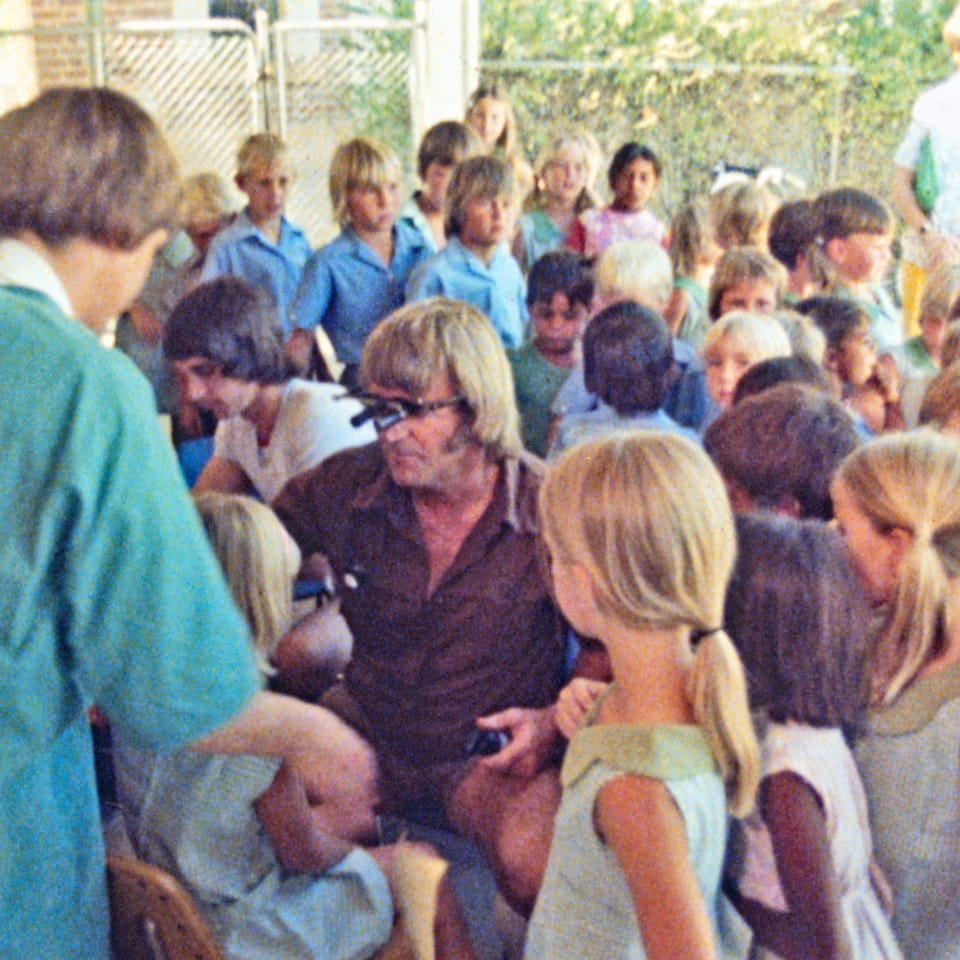
Fred Hollows examining the eyes of school children during The National Trachoma and Eye Health Program in the 1970s.
Ending avoidable blindness
"One of the great joys of my life is having been part of the training of Sanduk Ruit and his training others." - Fred Hollows
The Founder of The Fred Hollows Foundation, Prof. Fred Hollows believed in empowering people. That’s why we invest in training a range of people from community health workers to surgeons. Building local skills has always, and will always, be at the heart of our work.
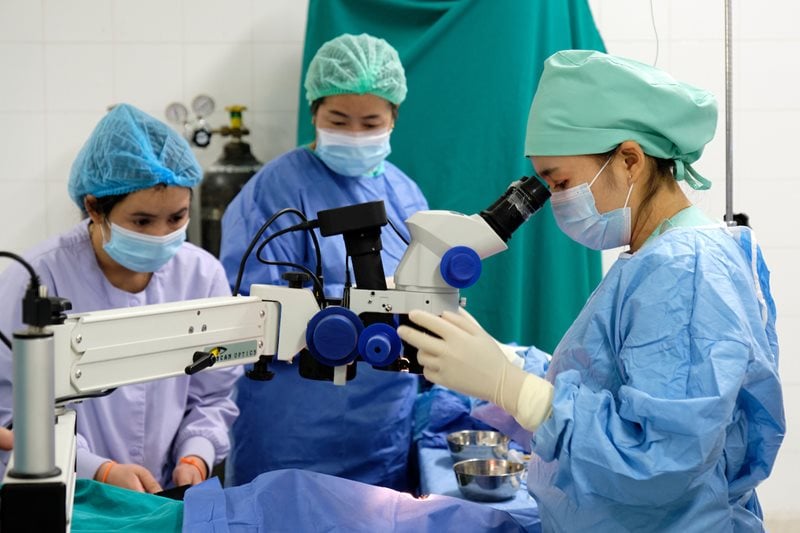
Training
Fred believed that training and empowering local people was the key to sustainable change. The Foundation trains doctors, nurses and health care workers so they can recognise, diagnose, refer and treat eye problems in their communities.
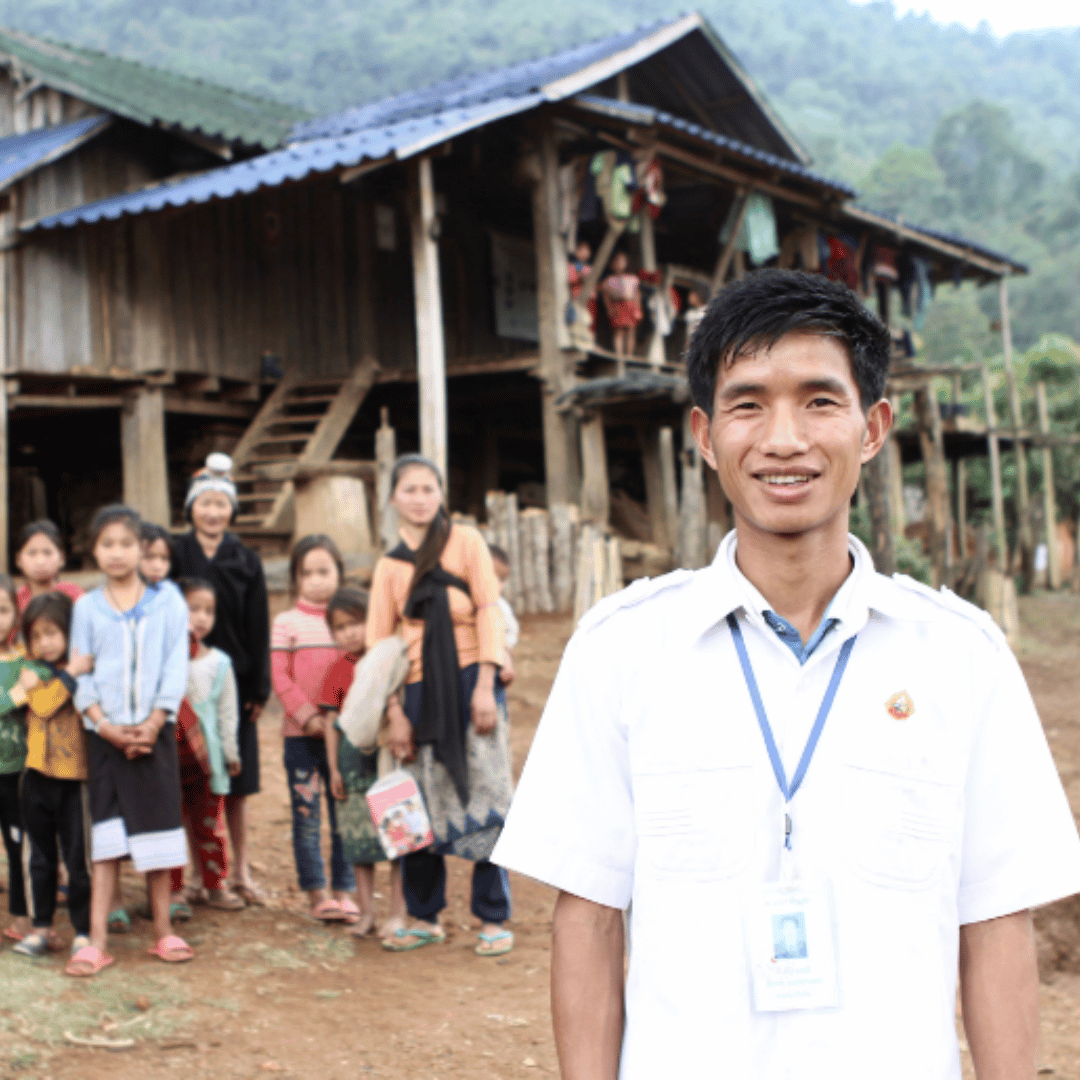
Doorstep diagnosis
Community health workers are a vital link between patients and eye health services. Trained by The Foundation, they visit communities, diagnosing a range of medical conditions and referring people to medical clinics, hospitals and doctors. Performing initial consultations like these is essential, because potentially damaging eye health issues are identified before they become critical.
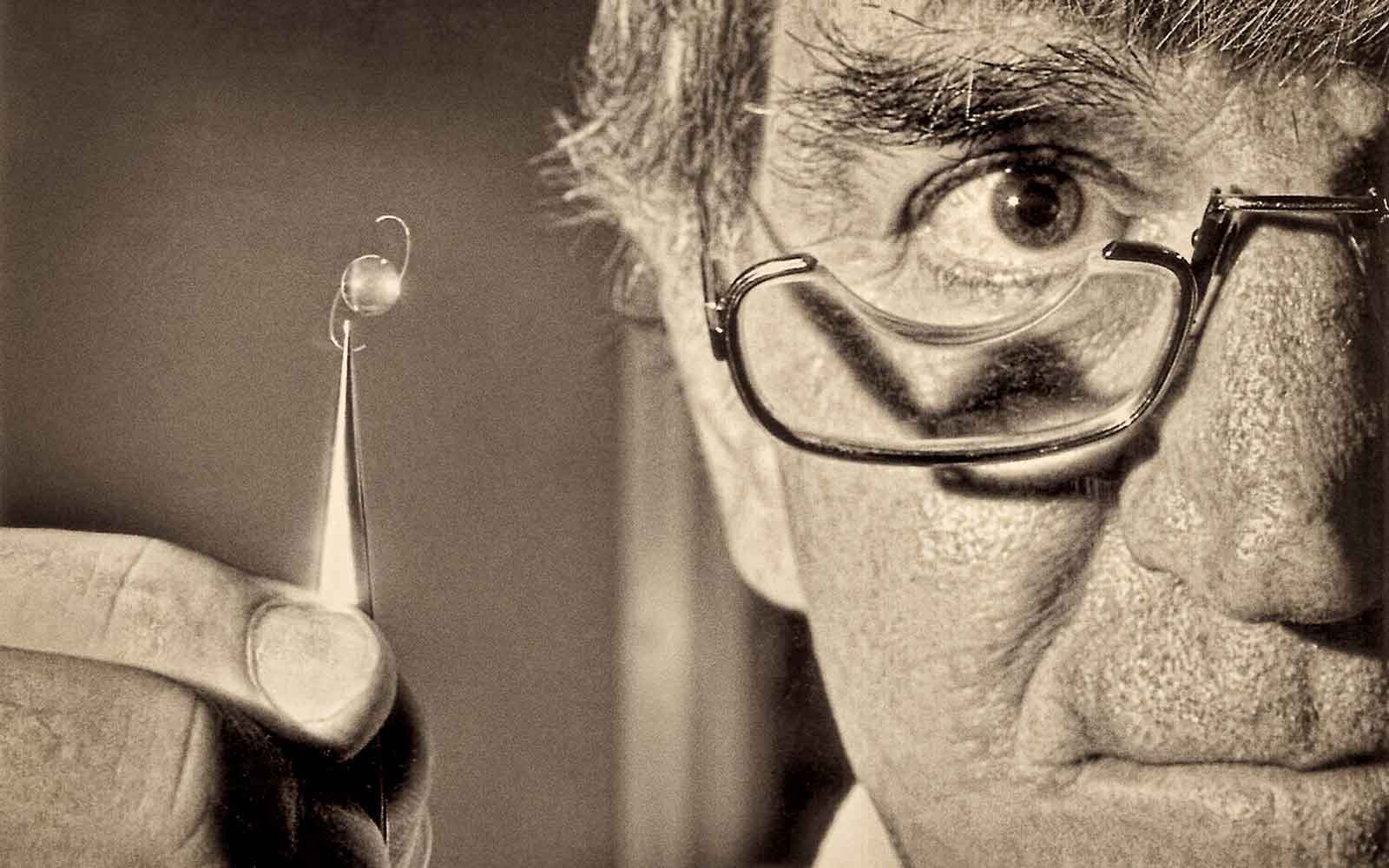
Fred’s passion for teaching
Fred was an advocate of hands on learning. He firmly believed there should always be three people in a room: a teacher, a student and a patient. Whether it was in an operating theatre in Sydney or Hanoi, Fred took great delight in seeing the moment of understanding in his students’ eyes.
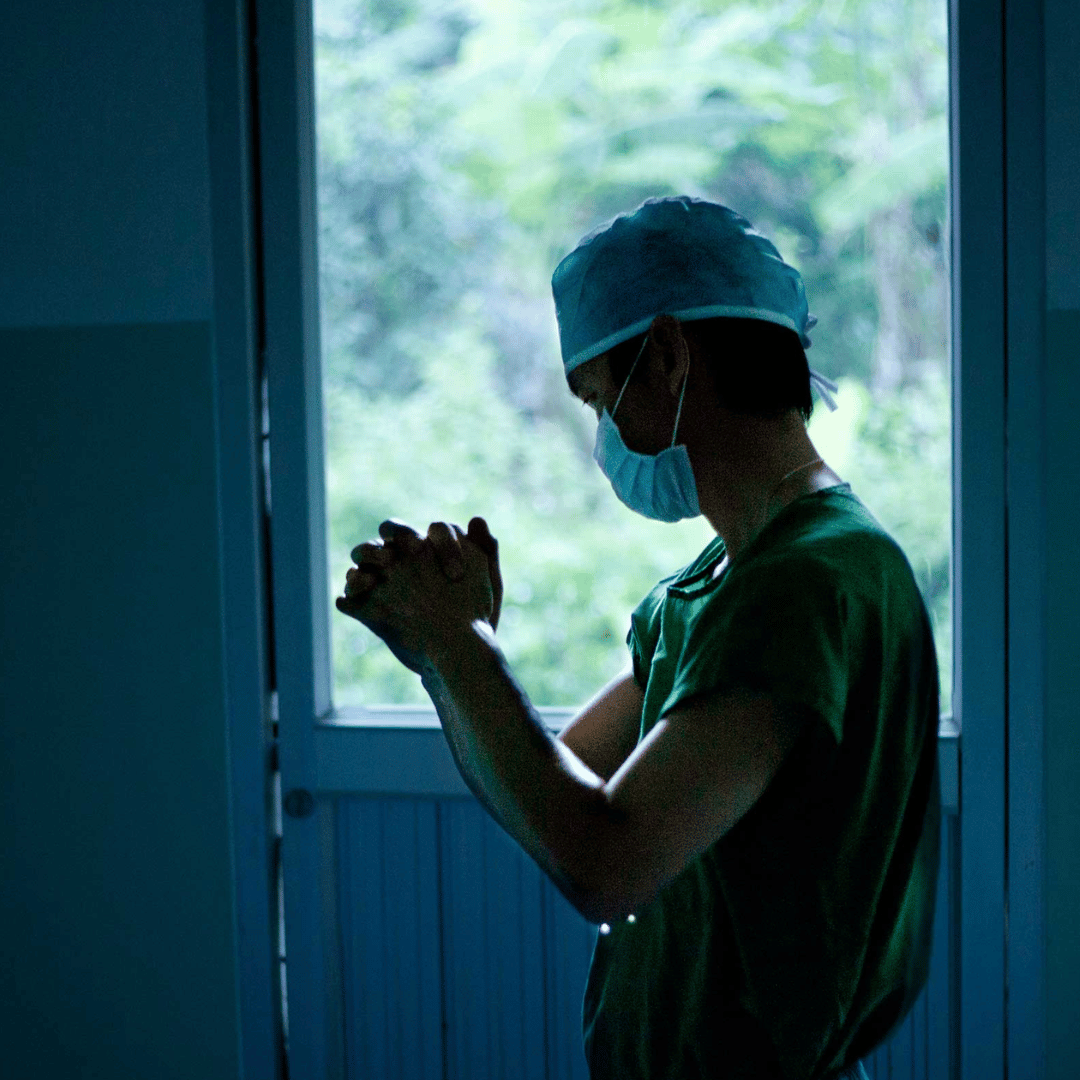
The last lesson
Despite being very ill with cancer, Fred discharged himself from hospital in July 1992 to fly to Hanoi. There he wanted to fulfil his promise to train over 300 Vietnamese eye specialists in modern eye surgery techniques.
